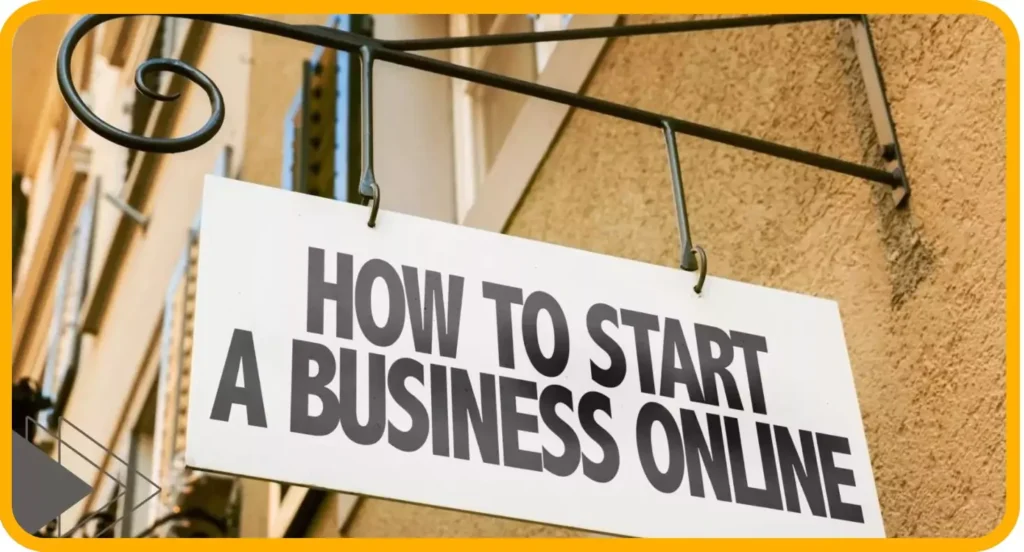Why 2025 is the Perfect Year to Start an Online Business
If there was ever a time to bet on yourself, 2025 is it. With technological advancements, remote work culture, and booming e-commerce, the digital landscape has never been more ready for new entrepreneurs. From AI tools to automation, starting an online business has become faster, cheaper, and more accessible than ever.
The Rise of Digital Entrepreneurship
More people are ditching traditional 9-to-5s to chase freedom and flexibility online. Whether it’s selling digital products, offering services, or creating content—online businesses are thriving across niches. Plus, platforms like Shopify, Etsy, and Substack make launching a business nearly plug-and-play.
Planning Your Online Business
Identify a Profitable Niche
This is where it all begins. Choosing the right niche can make or break your online business.
How to Research Market Demand
Use tools like Google Trends, Ahrefs, and Ubersuggest to see what people are searching for. Look for upward trends and low competition.
Finding the Right Audience
Know who you’re selling to. Create customer avatars—age, interests, problems, goals. The clearer your target, the sharper your strategy.
Define Your Business Model
Product-Based vs. Service-Based
Products (physical or digital) offer scalability. Services (like coaching or freelancing) can bring quick cash flow. Pick what fits your strengths.
Subscription, Affiliate, or Dropshipping?
-
Subscription: Recurring revenue model (e.g., membership sites)
-
Affiliate: Promote other people’s products and earn commissions
-
Dropshipping: Sell products without handling inventory
Legal and Financial Basics
Register Your Business Legally
Pick a business structure (LLC, sole proprietorship, etc.) based on your goals. It protects your assets and builds credibility.
Set Up a Business Bank Account
Keep your finances clean and separate. It simplifies taxes and shows you’re legit.
Understanding Taxes for Online Businesses
Learn about sales tax, self-employment tax, and international tax rules if you sell globally. Tools like QuickBooks or Wave can help.
Building Your Online Presence
Create a Professional Website
This is your digital storefront—make it count.
Choosing a Domain Name
Keep it short, memorable, and brandable. Go for .com if you can.
Hosting and Design Tools
Use reliable hosting (like SiteGround or Bluehost) and builders like WordPress or Webflow for full customization.
Set Up E-Commerce Functionality
Payment Gateways and Shopping Carts
Integrate PayPal, Stripe, or Square. For e-commerce platforms, Shopify and WooCommerce are solid options.
Content and Branding Strategy
Craft a Unique Brand Identity
What makes your business stand out? Design a killer logo, consistent visuals, and a compelling brand voice.
Develop a Content Marketing Plan
Blogging
Drives organic traffic and builds trust.
Video Marketing
Great for YouTube, TikTok, or Reels. Visuals boost engagement.
Podcasting
Perfect for long-form storytelling and building authority.
Leveraging Social Media
Choose the Right Platforms
Go where your audience hangs out. B2B? Try LinkedIn. Lifestyle or fashion? Instagram or TikTok.
Building a Following Organically
Engage with followers, provide value, and be consistent. Use stories, reels, and live sessions.
Paid Advertising for Faster Growth
Use Facebook Ads, Google Ads, or Pinterest Ads to target your ideal customer and scale faster.
Email Marketing and Automation
Building an Email List
Use opt-in forms and pop-ups to collect emails.
Creating Lead Magnets
Offer something irresistible—checklists, mini-courses, discounts—in exchange for an email.
Automating Email Campaigns
Use platforms like ConvertKit, Mailchimp, or Klaviyo to send personalized, automated emails that convert.
SEO and Traffic Generation
On-Page and Off-Page SEO
Optimize your content, URLs, titles, and meta descriptions. Get backlinks from reputable sources.
Using Analytics to Drive Results
Track what works with Google Analytics or Hotjar. Double down on what’s bringing results.
Collaborations and Guest Posting
Partner with others in your niche. It’s a win-win for exposure and backlinks.
Monetization Strategies
Selling Digital Products
E-books, templates, and courses have high margins and zero inventory.
Offering Online Courses
Platforms like Teachable or Thinkific let you monetize your expertise.
Affiliate Marketing Income
Recommend products you love. Build trust and earn commissions passively.
Scaling Your Business
Outsourcing and Hiring
Use Fiverr, Upwork, or OnlineJobs.ph to hire freelancers and scale without burnout.
Expanding Product Lines
Add complementary products or services to boost revenue per customer.
International Growth
Translate your site, use global payment methods, and market internationally.
Dealing with Challenges
Handling Competition
Focus on what makes you different. Your story, voice, or customer service can set you apart.
Managing Burnout
Set boundaries. Automate tasks. Take breaks. Your mental health is a business asset.
Coping with Economic Shifts
Diversify income streams. Keep learning and adapting. Agility is key.
Tools and Resources
Must-Have Tools for Entrepreneurs
-
Canva – Design like a pro
-
Trello/Notion – Organize your workflow
-
Grammarly – Perfect your writing
-
Zapier – Automate tasks
Free vs. Paid Resources
Start lean. Use free tools, then upgrade when it makes financial sense.
Real-Life Success Stories
Interviews with Online Business Owners
From stay-at-home parents to ex-corporate employees, real people are building six-figure businesses online.
Lessons Learned from Failures
Many fail first—what sets winners apart is the bounce-back and ability to pivot.
Conclusion: Your First Steps Today
Starting a profitable online business in 2025 doesn’t need to be overwhelming. Choose a niche, build your platform, connect with your audience, and start small. Every successful entrepreneur was once a beginner who decided to try. So what are you waiting for?
FAQs
1. What’s the easiest online business to start in 2025?
Dropshipping or affiliate marketing—minimal upfront investment and easy setup.
2. How much money do I need to start an online business?
You can start with as little as $100 for domain, hosting, and basic tools.
3. Do I need tech skills to start an online business?
Not really. With platforms like Shopify, Wix, and WordPress, anyone can build a site without coding.
4. How long until my online business is profitable?
It depends. Some see profits in months; others take a year. Consistency is key.
5. Can I run an online business part-time?
Absolutely. Many start as side hustles and go full-time later.
Read more articles About Online Business & Entrepreneurship
